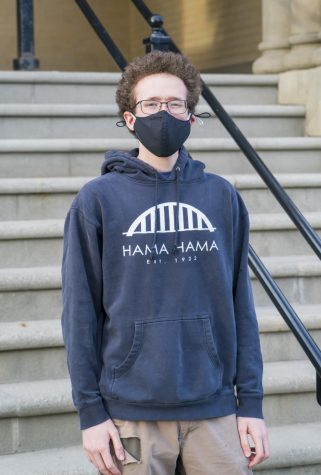ASWC proposes three FSR-related resolutions urging Board of Trustees to consider student needs
March 11, 2021
In response to community-wide distress generated by the Financial Sustainability Report (FSR), the Associated Students of Whitman College (ASWC) passed three resolutions on Feb. 21.
“Resolutions are written as representative of a stance and/or advocacy ASWC wants to make in response to current issues on campus that end up going through the Senate to be passed by a two-thirds majority vote,” ASWC President Sneh Chahra said in an email to The Wire.
All three resolutions passed with the majority of the vote in the Senate. Chachra presented these resolutions to the Board of Trustees on Feb. 26.
The first resolution, “A resolution advocating that The Board of Trustees prioritize financial access to Whitman College,” is the only resolution that received a unanimous vote from 33 Senators. This resolution urged the Board of Trustees to forgo major changes to the financial aid of students living off campus. The resolution says that, at worst, equitable cuts should be made in the financial aid of students living both on and off campus.
The first resolution ends with the following statement: “ASWC advocates that the preservation of and investments in financial aid and services that help the most vulnerable students be prioritized over all recommendations, changes or revisions.”
This resolution also discourages the administration from raising tuition fees for students taking academic overload, which is taking more than 18 credits per semester.
The second resolution, “A resolution calling for the preservation of critical academic programs,” was the only resolution to receive divided support. Out of 33 members, seven voted no and two abstained from voting. The resolution urged the Board to keep investing in the Japanese, Chinese and Arabic Departments, which benefit many international students and students of color.
Benjamin Canty, a first year and member of the Oversight Committee, explained why he voted no on the second resolution. Canty said that for him, the first resolution held more priority and the second seemed to take away attention from the first. He felt that giving only 15 minutes to this topic in the Senate was inadequate time to discuss these complex resolutions.
“It felt wrong almost for me to be making that decision, and to be pushing for something that I lacked knowledge of,” Canty said.
The third and final resolution, “A resolution calling for adjustments to the feedback and implementation structure for college-wide reports,” received 31 votes in affirmative and two abstentions. ASWC urged the Board of Trustees for a minimum one month of feedback time for any reviews, projects or proposals. A variety of means to gather feedback should be provided, the resolution stated, and a level of transparency about released minutes should be maintained during the feedback period.
When the FSR involves possible financial aid changes for programs which mostly benefit students from marginalized backgrounds, ASWC urged that investment in these programs is prioritized.
Llewyn Merrill, a sophomore Student Outreach Representative, felt particularly strongly about the third resolution. With many other events going on simultaneously, two weeks was not adequate time to provide feedback, he said.

Similarly, according to Canty, the FSR and the resolutions were both hastily done.
“FSR way too rushed, resolutions way too rushed and that’s how I feel about it,” Canty said. “FSR did force a rushing of the resolutions, but I still feel that we could have handled the resolutions a bit better.”
The resolutions encourage the Board of Trustees to follow their 2017-2022 Strategic priorities. Merrill hoped that the Board takes into consideration all three resolutions.
“I think it’s important to know that the resolutions are an official statement by the student government and that in itself carries weight with it,” Merill said. “However, the ultimate decision for what to do next with the sustainability review does reside with the Board.”





